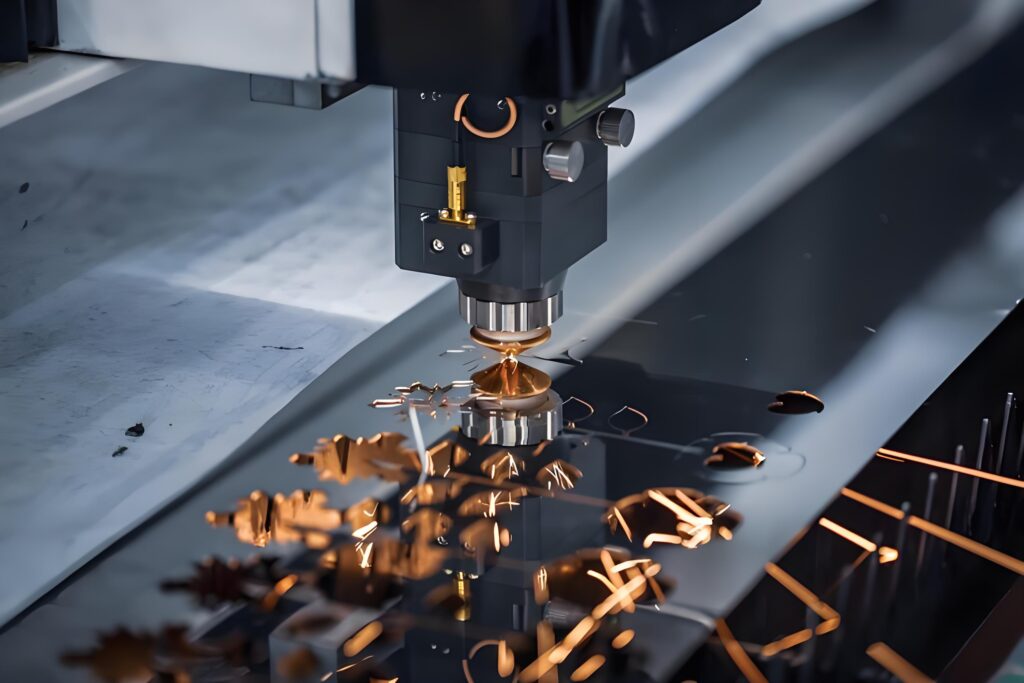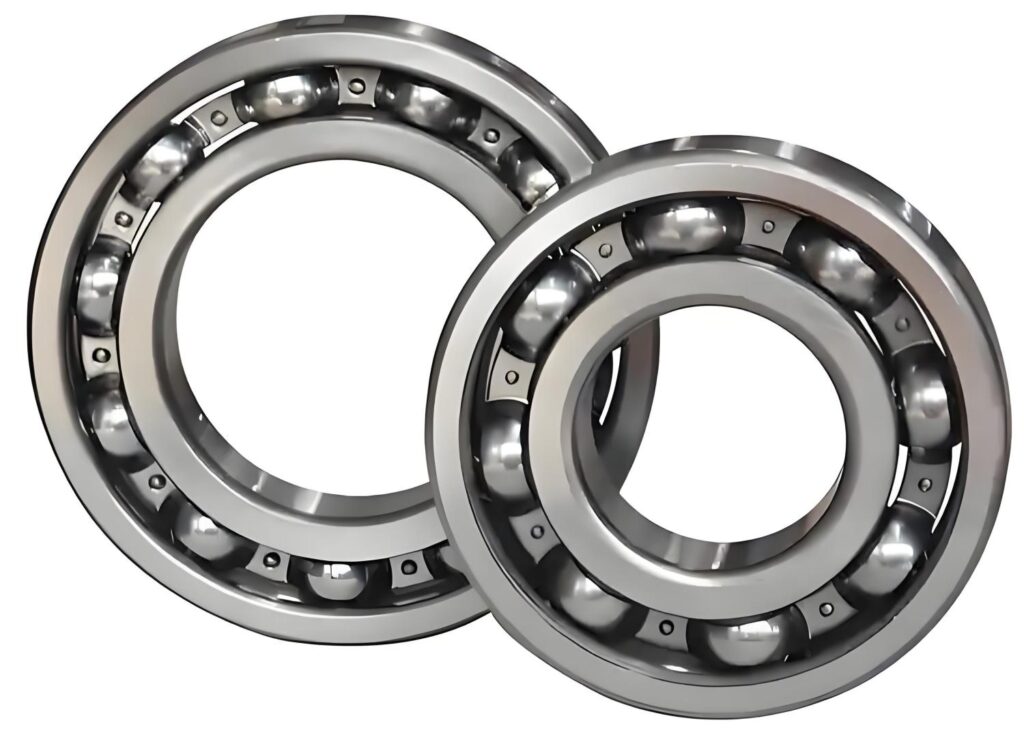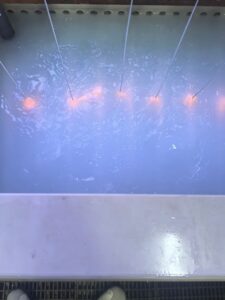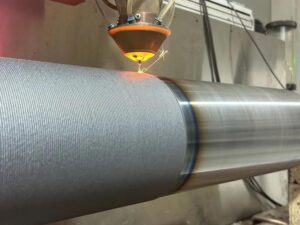What is 52100 Steel?
52100 steel, often referred to as ball bearing steel, is a high-carbon, chromium-containing alloy known for its excellent hardness and wear resistance. Developed specifically for bearing applications, it belongs to the family of low-alloy steels and is widely used in industries where components must endure high stress and repetitive motion. Its ability to maintain dimensional stability under heavy loads makes it ideal for precision parts like bearings and rollers. The steel’s reputation stems from its balanced composition, which allows it to achieve superior mechanical properties after proper heat treatment.
This alloy has been a staple in manufacturing for decades, particularly in the production of bearings for automotive, aerospace, and industrial machinery. Its versatility extends beyond bearings, finding use in tools and other high-wear components. Understanding the makeup of 52100 steel is key to appreciating its widespread use.
52100 Steel Composition
- Carbon (C): 0.98–1.10% – Provides hardness and wear resistance.
- Chromium (Cr): 1.30–1.60% – Enhances corrosion resistance and hardenability.
- Manganese (Mn): 0.25–0.45% – Improves strength and toughness.
- Silicon (Si): 0.15–0.35% – Contributes to elasticity and strength.
- Phosphorus (P): ≤0.025% – Kept low to avoid brittleness.
- Sulfur (S): ≤0.025% – Minimized to enhance machinability and toughness.
- Iron (Fe): Balance – Forms the base of the alloy.
This composition gives 52100 steel its signature characteristics, making it suitable for applications requiring both toughness and wear resistance. The high carbon content ensures exceptional hardness, while chromium improves its ability to resist wear and maintain structural integrity under stress.
52100 Steel Properties
Physical Properties
- Density: Approximately 7.81 g/cm³, typical for high-carbon steels.
- Melting Point: Around 1420–1460°C, allowing it to withstand high-temperature processing.
- Thermal Conductivity: Moderate, enabling effective heat dissipation during operation.
- Specific Heat Capacity: Standard for steel alloys, supporting consistent performance during heat treatment.
These properties make 52100 suitable for high-temperature and high-stress environments. The thermal conductivity ensures that the material can efficiently dissipate heat during operation, especially in high-speed machinery.
Mechanical Properties
- Hardness: Up to 60–66 HRC (Rockwell Hardness Scale), ideal for wear-resistant applications.
- Tensile Strength: Approximately 800–2000 MPa, depending on heat treatment.
- Yield Strength: High, supporting its ability to resist deformation under load.
- Fatigue Resistance: Excellent, making it suitable for cyclic loading in bearings.
- Toughness: Moderate, balancing hardness with the ability to absorb impact without fracturing.
These mechanical properties are responsible for its wide adoption in the bearing and tooling industries. Its high hardness and tensile strength mean that parts made from 52100 steel can endure repeated loads without significant deformation.
52100 Steel Heat Treatment
Heat treatment is a critical process for unlocking the full potential of 52100 steel. The alloy’s composition allows it to respond well to various heat treatment techniques, which enhance its hardness, strength, and wear resistance. Common heat treatment processes include:
- Annealing: Softens the steel for machining, typically performed at 750–800°C followed by slow cooling.
- Hardening: Involves heating to 815–845°C, quenching in oil, and achieving high hardness levels.
- Tempering: Performed at 150–200°C to reduce brittleness while maintaining hardness.
- Spheroidizing: Used to improve machinability by forming spherical carbides in the microstructure.
Proper heat treatment ensures that 52100 steel achieves the desired balance of hardness and toughness. For example, in 52100 steel forging, heat treatment is essential to create components with uniform strength and durability. Manufacturers must carefully control these processes to avoid issues like cracking or excessive brittleness, ensuring the steel performs optimally in its intended application.
52100 Alloy Steel Machining

Machining 52100 alloy steel requires precision and expertise due to its high hardness and wear resistance. While the alloy’s properties make it ideal for durable components, they also present challenges during machining. Key considerations include:
- Tool Selection: Carbide or high-speed steel tools are recommended to withstand the alloy’s hardness.
- Cutting Speeds: Lower speeds are often used to prevent tool wear and ensure accuracy.
- Coolants: Proper cooling is essential to manage heat buildup and maintain surface finish.
- Precision Techniques: CNC machining is commonly employed to produce intricate 52100 alloy steel machined parts with tight tolerances.
Despite these challenges, 52100 steel’s machinability is improved through proper annealing, which softens the material before processing. Skilled machinists can create high-quality components, such as bearings and rollers, that meet stringent industry standards. The alloy’s ability to maintain dimensional stability during machining makes it a favorite for precision applications.
What Are 52100 Steels Used For?

52100 steel’s unique properties make it a versatile material across various industries. Its primary applications include:
- Bearings: As a premier bearing steel, it is used in ball and roller bearings for automotive, aerospace, and industrial machinery. Its high hardness and fatigue resistance ensure long-lasting performance.
- Automotive Components: Used in gears, shafts, and other parts requiring wear resistance and strength.
- Industrial Tools: Employed in cutting tools, dies, and punches due to its durability.
- Aerospace: Found in precision components like turbine bearings, where reliability is critical.
- Medical Devices: Used in surgical instruments and other high-precision tools.
The versatility of 52100 steel extends to custom applications, such as 52100 steel forging for heavy-duty components. Its ability to perform under high stress and repetitive motion makes it indispensable in industries where failure is not an option.
Advantages and Disadvantages of 52100 Steel
Like any material, 52100 steel has its strengths and limitations. Understanding these can help manufacturers make informed decisions about their use.
Advantages
- High Hardness: Achieves exceptional hardness after heat treatment, ideal for wear-resistant applications.
- Excellent Wear Resistance: Resists abrasion and surface wear, extending component lifespan.
- Fatigue Resistance: Performs well under cyclic loading, making it suitable for bearings.
- Cost-Effective: Offers high performance at a relatively low cost compared to other specialty alloys.
- Versatility: Suitable for a wide range of applications, from bearings to tools.
Disadvantages
- Corrosion Resistance: Limited compared to stainless steels, requiring coatings or lubricants in corrosive environments.
- Machining Challenges: High hardness can make machining difficult, increasing production costs.
- Brittleness: Without proper tempering, steel can be prone to cracking under impact.
- Heat Treatment Sensitivity: Requires precise heat treatment to achieve optimal properties, adding complexity to manufacturing.
By weighing these factors, manufacturers can determine whether 52100 steel is the right choice for their specific needs. Its advantages often outweigh its limitations, particularly in applications requiring durability and precision.
Precionn: Your Partner at 52100 Steel Machining
When it comes to working with 52100 alloy steel, partnering with an experienced machining company is essential to achieving the best results. Precionn, a leader in the machining industry, specializes in producing high-precision components from 52100 steel and other high-performance alloys. With a commitment to quality and innovation, Precionn leverages advanced CNC machining techniques to deliver parts that meet the strictest industry standards.Visit Precionn’s website to learn more about their capabilities and how they can support your next project with 52100 steel solutions.




